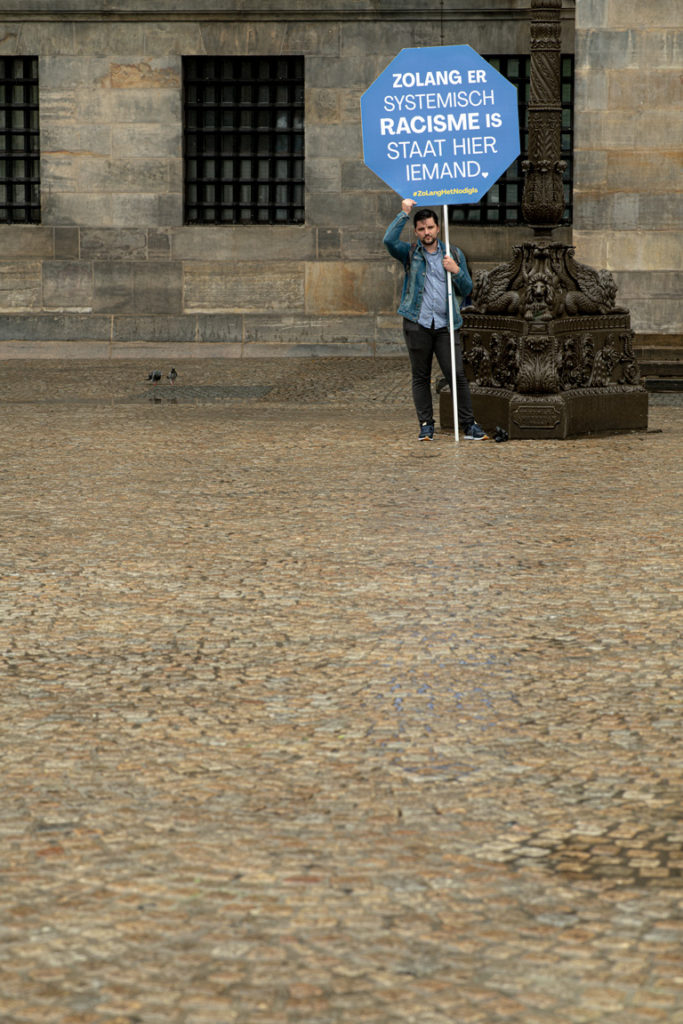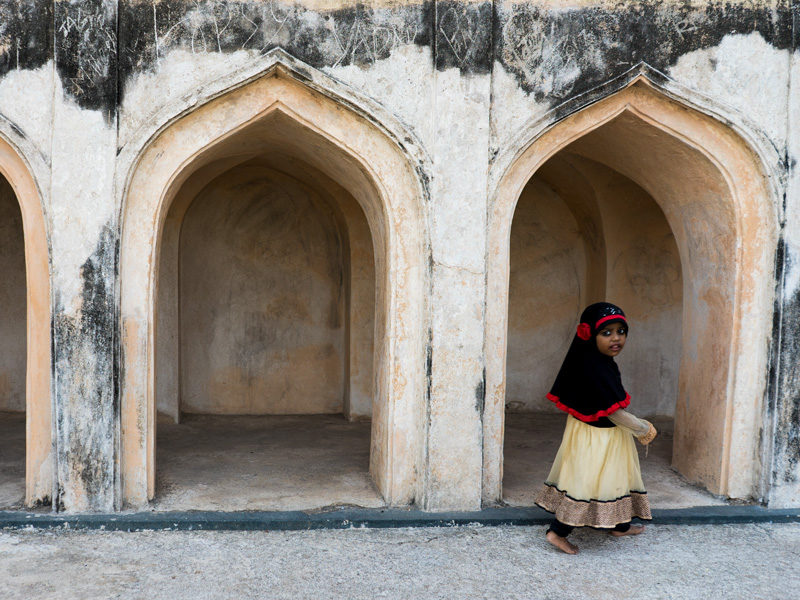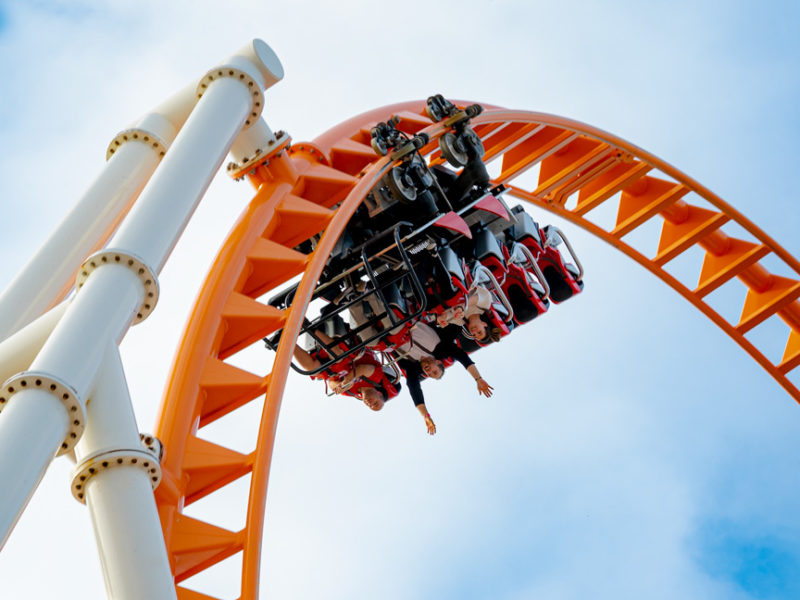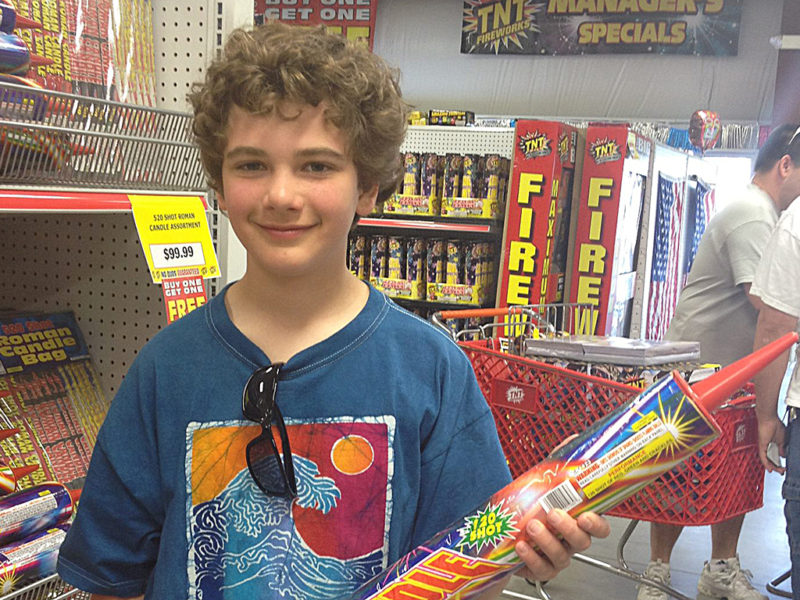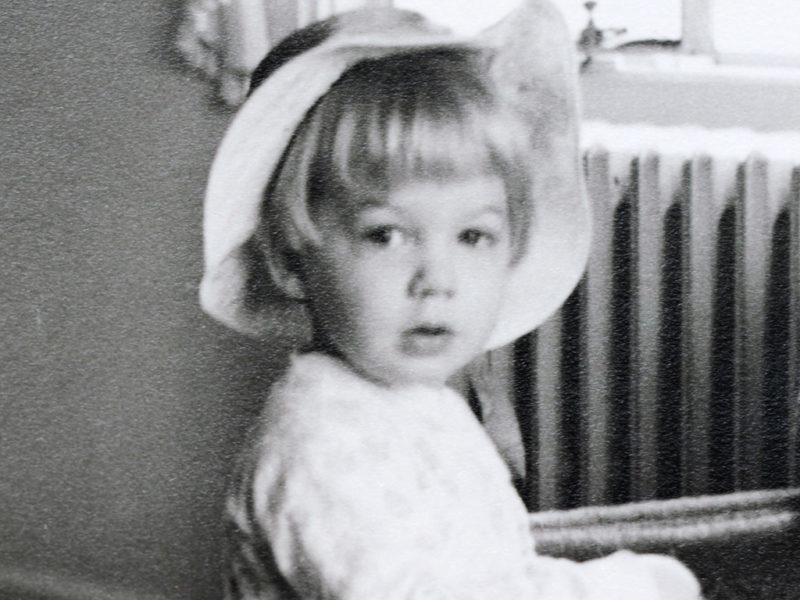Enter Paul Griffiths. Paul has had a rough patch. The global pandemic of 2020 surely displaced thousands of people globally, and Paul’s story is just one of them. Three months before our meeting he left his home in South Africa for a four day freelance job in Gabon, and hasn’t been able to return since. Due to the pandemic, it may be at least another six months before he can get a flight back.
Sure As You’re Born (White)
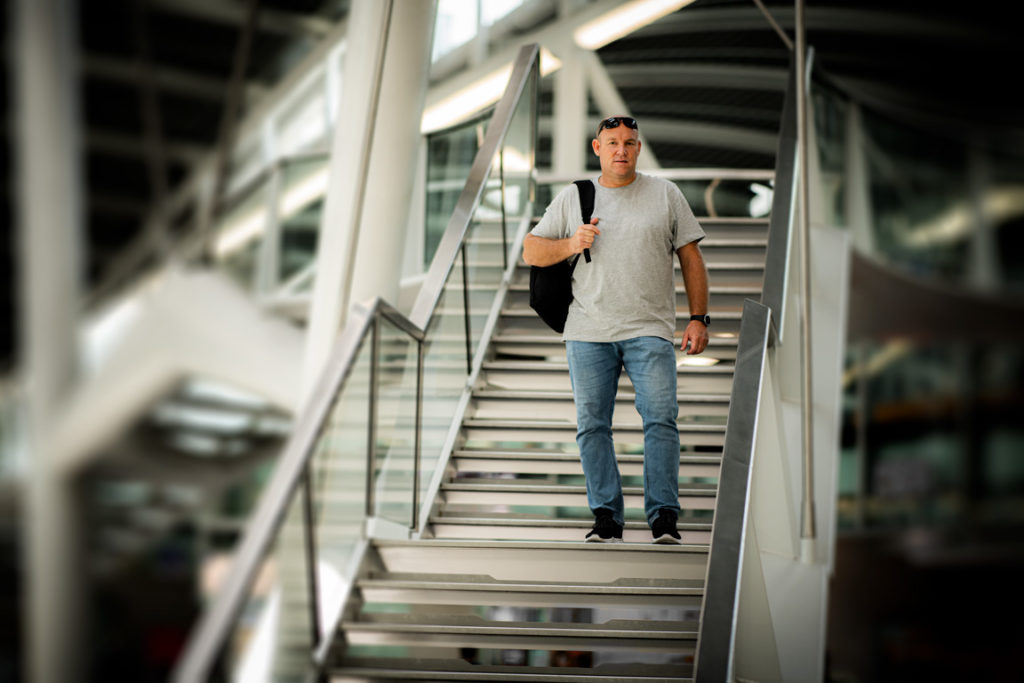
A meeting had been set up for an interview between us with the help of his sister, who lives on the outskirts of Amsterdam where Paul has taken over a nephew’s bedroom. The backdrop of our meeting is the global pandemic of Covid-19. The horrific news cycle was interrupted by the callous and defiant daylight murder of an African American man named George Floyd by a Minnesota policeman in full public view. This sparked the Black Lives Matter protests throughout the US and around the world, which prompted the US President to ask his Defence Secretary if he could shoot the protesters, but later settled on just tear-gassing them instead.
Paul and I meet in a bar near Amsterdam Centraal and drink refreshing La Chouffes until the early evening. Bars and restaurants had recently re-opened but other precautions remained in place. Whether we recognised and acknowledged it or not, this was our privilege and good fortune on full display: Casually chatting over beers while occasionally glancing at the silent TV above the bar as the news showed footage from our respective home countries as they burned.
Paul left his rented home in Kyalami, South Africa on 12 March 2020. He is recently divorced, has no children, and due to his constant travelling, no pets. His grandfather moved from the UK to South Africa after WWII “to get some sun.” Paul’s mother followed with Paul when he was seven years old.
Like me, Paul travels with two passports at all times, his from South Africa and the UK, mine from Germany and the US. There is currently a stronger than usual backlash against the presence of white people in South Africa, and work is harder to find. There is also increased crime and violence against the population. This has caused a number of white people to flee back to the countries from which their ancestors emigrated, most notably the Netherlands and the UK.
Earlier in his career Paul worked as a helicopter pilot, but for the past year was employed as a freelance helipad inspector. He would travel the African continent from helipad to helipad performing CAP 437 safety certifications. Proper landing pad lighting, size, grip efficiency standards and more than a hundred other criteria all had to be met to obtain this certification. One of Paul’s employers was a company which subcontracted his services to numerous oil companies. This brought him to many oil rigs, often a hundred miles out into the world’s oceans.
His four day job in Gabon was to certify a helipad on an oil rig in the South Atlantic Ocean, about a hundred and thirty miles off the coast. When he arrived, Gabon was extremely hot and humid, as is the norm. Malaria was a concern. Paul knew that he would be either in his hotel, a helicopter or on the rig for the majority of his time in Gabon, and assumed the risks.
On 16 March while on the rig and with his day’s work complete Paul settled in to dinner and saw on the television that the world was going into lockdown due to the global Corona virus outbreak. A heightened anxiety washed over him as he reflected on his situation. He was isolated in the middle of the ocean, surrounded by only a dozen other workers. He needed to rush back into civilisation which was locking down due to a quickly spreading deadly virus to avoid being abandoned on the rig indefinitely, perhaps even left for dead. It was imperative that he not only get off of the rig, but return home to South Africa as quickly as possible before all international flights were suspended.
The next morning he departed the rig and made it back to his hotel only to discover that not only were there no more flights out of the country, but that the hotel was now empty of guests. There was a skeletal staff present, and they were trying to close the hotel.
Paul contracted his employer who told him that he was on his own. Paul would only be paid for the four days of work, as initially agreed to, and there was nothing else they could or would do for him. They did not have insurance that would protect or provide for him in this scenario.
With little recourse left, Paul appealed to the client for whom he indirectly was working. The conversation did not start well. “We’re not paying you three thousand dollars a day until you get home,” they told him. This was out of context and unduly confrontational, he thought. What he came to understand through that brief conversation was that his employer was billing out his time to the client at $3,000 per day, but was paying Paul only $500. This had been going on for a year. In the end, the oil company agreed to essentially keep him alive by making arrangements for the hotel to continue to accommodate and feed him, but nothing more.
Other oil companies in Gabon had contractors from South Africa working for them as well. A WhatsApp group was quickly formed and there was discussion of getting some of them onto a cargo boat which was headed for South Africa. It would be a fourteen day journey, with arrangements made by one of the other oil companies. There was limited space, however, and in the end, not enough room to accommodate Paul.
Back at his hotel alone, Paul learned that his credit card was not accepted anywhere in Gabon. He had a €50 per diem in cash, and made arrangements for another €100 to be wired to him from a friend in the UK. The staff in the hotel were all Chinese and spoke no English, so communication was difficult. They offered him a menu which he had to use Google translate on his phone to decipher. Soon, more and more items were crossed off of the menu as food began to run out. Paul then began to hoard his food, stockpiling anything which might keep him alive another day.
During his second week in isolation in the empty hotel, Paul developed an ear infection, which became painful overnight. This forced him to venture out into the shuttered city in search of antibiotics during the pandemic with the added disadvantages of not having much money, or knowing the local language. With no choice but perseverance, he eventually discovered a chemist, and again using Google translate was able to gesture and mime enough to secure some antibiotics which eased the pain and slowly cleared up the infection.
His next move was to appeal to the UK embassy in order to get to a first world country, even if this meant taking him off the continent and travelling 3,500 miles in the opposite direction from his home in South Africa.
The embassy told him of a repatriation flight that would go through France and onward to the UK. They couldn’t promise him a seat, but told him that he should just arrive at the airport before the flight, and that it shouldn’t be a problem. Paul arrived at the airport only to discover that his name was never forwarded by the embassy, so he wasn’t on the list. He went back to the hotel dejected.
Days passed before Paul learned of another flight arranged by an agreement between the French and UK governments. Apparently there were enough people to justify a flight which would go through Paris then on to the UK. He would not be permitted to stay in Paris, but would be mandated to travel through to the UK. His goal was to get to Amsterdam, where his sister lived and could take him in.
After twenty nine days in Gabon, Paul found himself sitting in an airplane on the tarmac waiting for takeoff. He was determined not to believe he was actually leaving until the plane was airborne and the Fasten Seat Belts signs were turned off.
Seven hours later he landed in Paris around 1:00 in the morning. He had already purchased a ticket from Paris to Amsterdam, which would leave early the following morning. He also booked the cheapest hotel he could find online as his credit card was now recognised in France. He only needed to stay for a few hours to get some sleep, and the name fit the bill: the Comfort Hotel.
Using his cell phone to plot his course, and trying to save what little money he had Paul navigated the Paris Metro in the early hours of the morning to reach his hotel. In the underground Metro he now found himself alone on the train platform, but in the blink of an eye surrounded by a circle of five men. No words were spoken as the circle closed around him. Paul had been in similar situations before in South Africa, and was always armed with a pistol. He flashed on the thought that he was now unarmed as a noise from a nearby stairway momentarily distracted the circle of men closing in upon him. A tipsy and boisterous young couple came noisily down the Metro stairs providing the half second of cover that he needed to run out of the circle and up an adjacent stairway leading to the street. The men were only seconds behind Paul as he jumped into a cab which fortune had waiting just steps away from the Metro exit.
“Drive!” Paul yelled, jumping into the car, awkwardly aware of the cliche. The cab sped off as Paul looked over his shoulder out the back windshield to see the five men slow their pursuit in defeat. He paid for the cab using the €50 per diem he’d been holding since the beginning of the job a month ago.
His arrival at the Comfort Hotel was hard fought and won, yet the spoils of his victorious arrival were decidedly less celebrated. As he entered his room he quickly understood that his adventures were not over.
Mold was rampant throughout the room and had overtaken the walls, carpeting and floor. The smell of it was evident from the hallway as he first approached the room. The carpet, badly torn, was literally wet from an unknown source. It was now after 2:00 am and he needed to depart the hotel in three hours for his flight to Amsterdam. Unable to fight or flee any further, he collapsed on the bed and slept.
When I last spoke to Paul he was entertaining job offers here in the Netherlands. He’s obtained his residency card by virtue of his EU passport, same as me. He will survive, rebuild, and even thrive again thanks to all of his experience, education and technical ability. The same cannot be said for thousands around the world displaced and without a net.
After meeting Paul I watched CNN from the comfort of my living room as mass graves were dug in New York City using construction vehicles. Small cranes and bulldozers lowered the dead bodies as the country watched in disbelief. Other dead were left to rot in ice-filled rental trucks in Brooklyn as the morgues and funeral homes spilled over beyond capacity. The city where I worked for twenty years was immersed in crisis, violence, lies and chaos.
For Paul, the prevailing sentiment towards White people in South Africa was, “What the fuck are you doing here anyway?” Indeed, the timing couldn’t be worse to seek empathy for a White man displaced from his home there, as the concept of White people calling South Africa “home” was again being challenged.
Paul’s story forces serious questions to the surface about how we both collectively and individually define “home,” “property,” and our own cultural identities. How much of an invisible safety net do we have beneath us when we are in the face of real crisis, and what does it say about us if we are too complacent to care that there are others who have no net at all?
What privileges we have are granted to us, in part, by the countries in which our descendants were born, how little melanin is in our cells, and the opportunities this status bestowed upon us along the way.
